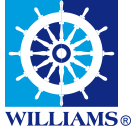Resolution No. 7.653, of March 31, 2020, published on Thursday 2 by Antaq (National Agency for Waterway Transport) in the Diario Uniao Official has the objective of establishing measures in response to the emergency of public health in the scope of waterway transport passengers and at port facilities due to the coronavirus pandemic (COVID-19). According to the Resolution, the following are restricted: the embarkation of symptomatic crew members or passengers, following Anvisa’s recommendations on the inherent procedures: the entry into the country of foreigners by port or point in the Brazilian territory, by waterway, regardless of their nationality, under the terms of the Portaria Interministerial da Presidência da República No. 47, of March 26, 2020; collective recreation events and activities, including private ones, on vessels, ports or port facilities; and self-service buffet services, to be replaced by à la carte services, portions or lunch boxes. In Article 4, Resolution No. 7.653 determines that the following practices are prohibited: restrictions on the movement of workers that may affect the functioning of public services and essential activities; and restriction of cargo of any kind that may lead to shortages of necessary genera for the population. Terminals with cruise ship operations must also: immediately suspend new shipments on cruise ships; authorize the disembarkation of Brazilian passengers and crew members asymptomatic of the cruise voyages in progress; authorize the disembarkation of asymptomatic foreign crew and passengers only after 14 days, counting from the date of departure from the last foreign port; guide the performance of home isolation for at least 14 days; and when the ship is docked in a Brazilian port, evaluate the daily notifications sent by the vessels, according to the flow defined in the Sanitary Guide for Cruise Ships (available at: http://portal.anvisa.gov.br/cruzeiros/guiasanitario). Companies authorized for the inland waterway transport of passengers must maintain a minimum distance of two meters between travelers in the distribution of seats, network accommodations and queues for boarding and disembarking. In addition, they must limit passenger occupancy to 50% of the vessel’s capacity during the entire journey. And more: book at least two cabins or cabins for accommodation of a person who has symptoms of COVID-19 during the trip. In addition to these provisions, Resolution 7.653 also provides that companies should provide guidance to passengers, workers and crew on the precautions that must be taken to avoid contagion with the coronavirus. Companies authorized for the waterway transport of passengers in longitudinal inland navigation must also register, in a list of passengers, the origin and the individual destination of each traveler; and maintain the list of passengers on board and at the company’s headquarters for the duration of Resolution 7,653.
Source: Antaq (Agencia Nacional para Transportes Aquaviarios)






